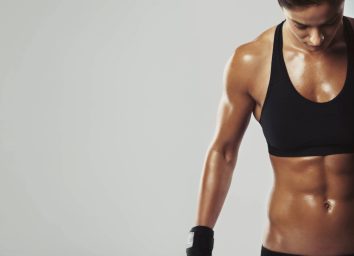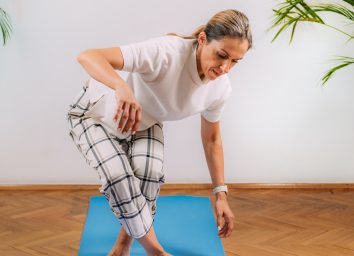Do You Walk for Exercise? Here's How Much Water You Should Drink
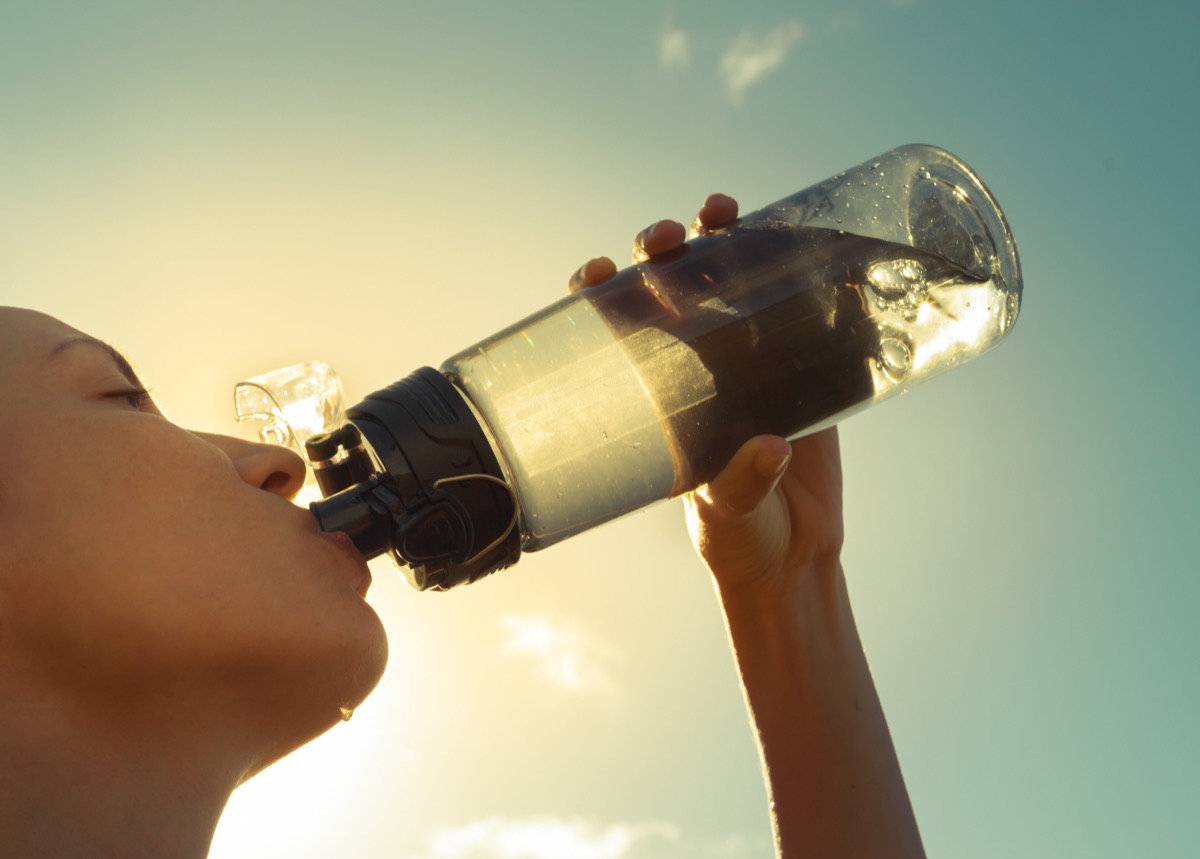
It's no exaggeration to say that water is the foundation of all life on Earth—including our own. Drinking enough of it "is so crucial to how we feel, think, and act," says Brigitte Zeitlin, RD, founder of BZ Nutrition. Water helps regulate our body temperature, lubricate joints, deliver nutrients to cells, and supports cognition and healthy sleep, she says. Yet despite its importance, many people are not drinking enough water, especially when they work out and go out for long brisk walks.
In general, it's recommended that you drink at least eight 8-ounce glasses of water a day for optimal hydration. This is the bare minimum, Zeitlin says, to ensure proper physical and cognitive function. But you need to drink more water when you exercise to make up for what you've lost through sweat and exertion—although how much depends on the activity itself.
"For anything like brisk walking, golf, yoga—something that you are active but not necessarily losing a lot of excess water—aim for one additional glass of water for every hour of exercise," Zeitlin says. For more strenuous exercise, like running, spinning, or HIIT, "aim for two to three extra glasses of water per 45 to 60 minutes [of activity]," she says.
So if you're doing a daily one-hour brisk walk, you need nine 8-ounce glasses of water per day. But if you're running for an hour, you should be drinking more. Put even more plainly: "On all days that you are active, aim for 10 to 12 glasses [of water] per day," says Zeitlin. Finding it hard to hit that target? Here are some RD-approved tips to help you drink more water. And for more on the benefits of walking more, see here for The Secret Trick for Walking for Exercise, Says Harvard.
Drink water first thing in the morning.
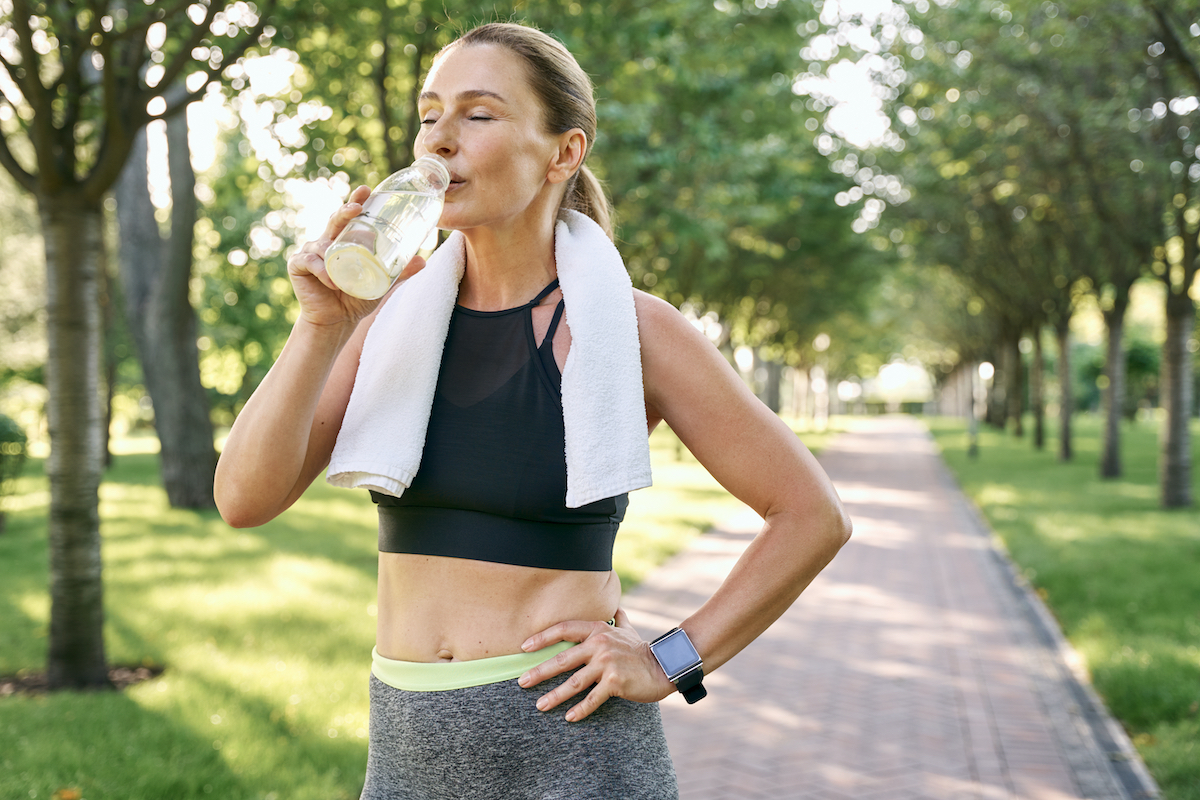
"Keep a glass of water by your bedside and drink it in full as soon as you wake up," Zeitlin says. This puts you one glass closer to your goal before you've even had breakfast—doubly important on days where you're going to work out and need the extra water. For more on proper hydration, see here for The Wrong Amount of Water to Drink Every Day, Says Exercise Scientist.
Have water with your meals
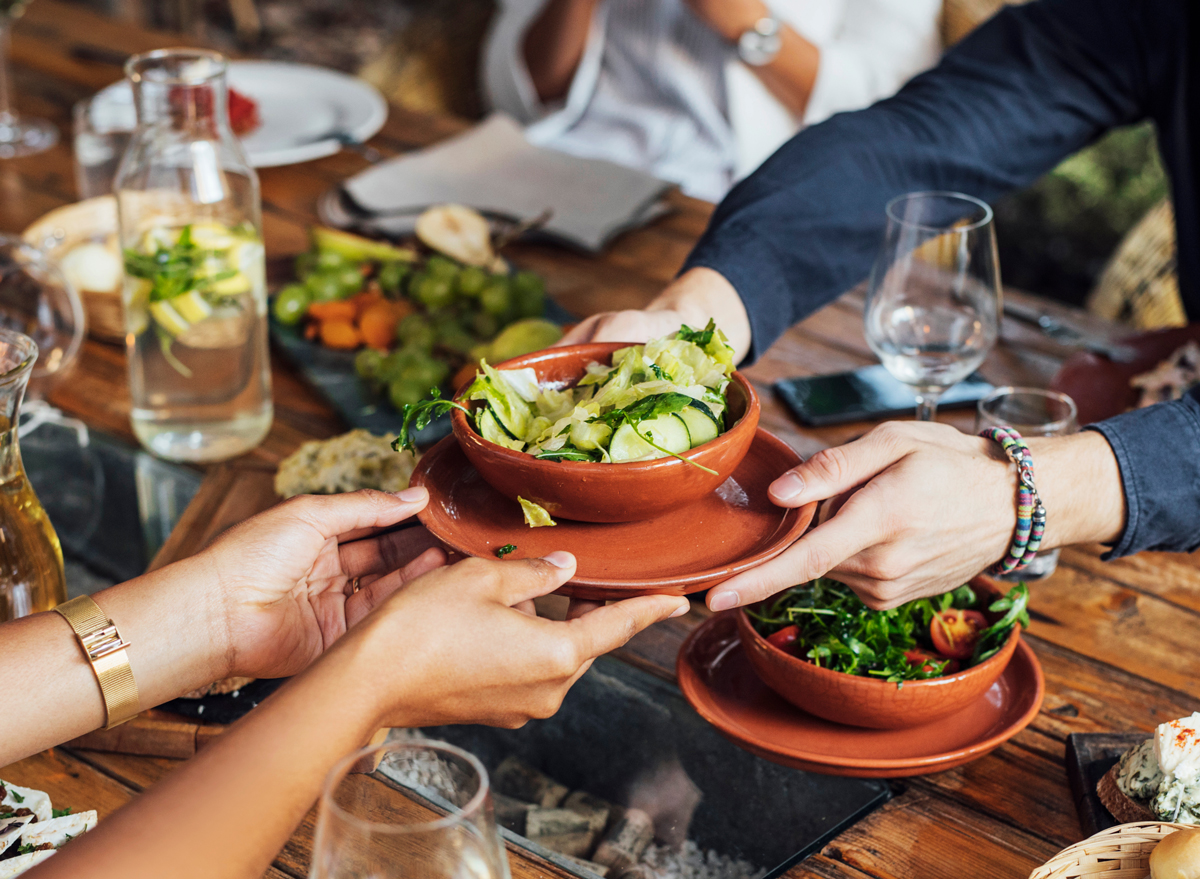
Pair your water intake with meal times to stay on track. "Aim for two glasses of water per meal," Zeitlin says. That's six right there if you eat breakfast, lunch, and dinner. Drink some water with your afternoon snack and you're set.
Add your own flavor
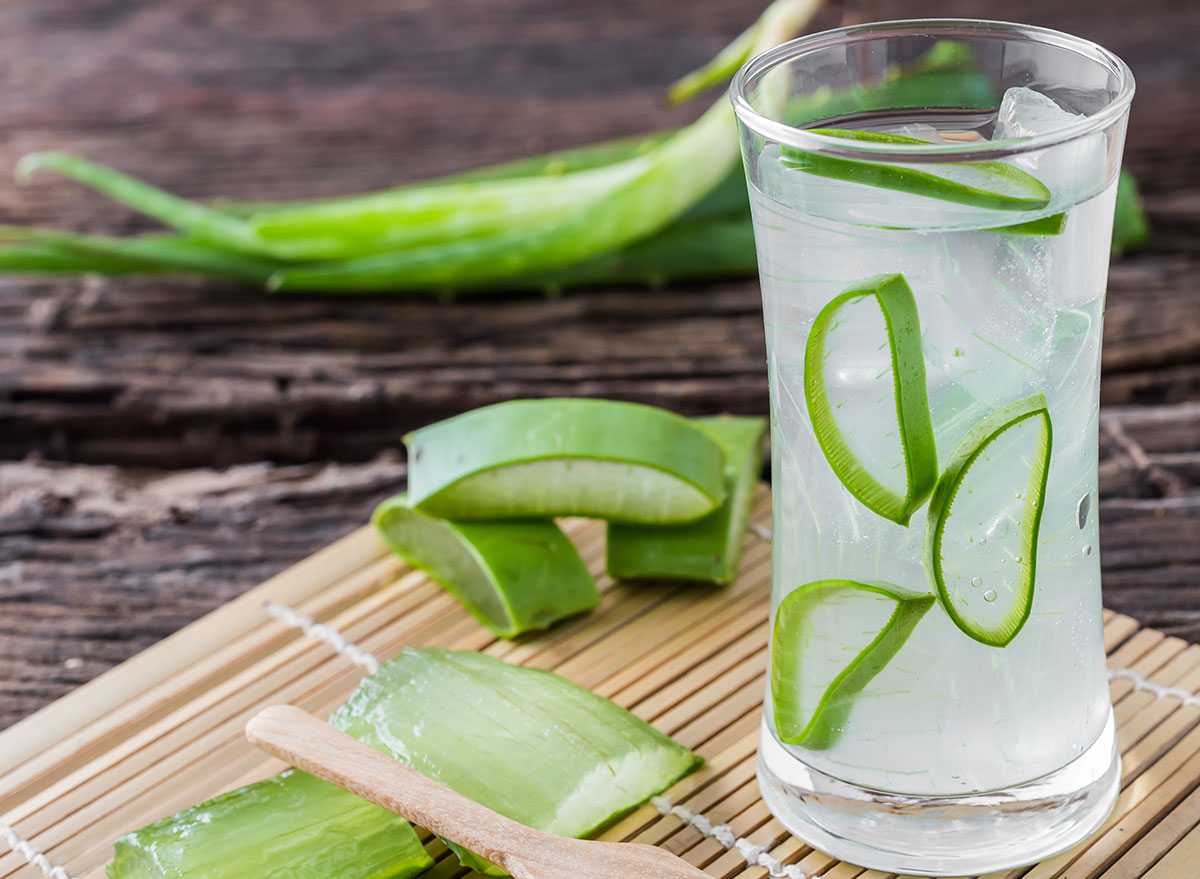
If you hate the taste (or lack thereof) of water, Zeitlin suggests adding your own from whole-food sources. "I love to add in frozen berries to my water—they work as both ice cubes and as flavor enhancers as they melt," she says. "Or add a slice of lemon, lime, orange, cucumber…they all pair really well water." But skip the sports drinks or flavored hydration supplements, she adds. "Plain old H20 is all you need unless you are a professional or Olympic athlete," she says. For the average fitness buff, "the sugar, additives, and chemicals from sports drinks outweigh the electrolyte benefit you think you are getting."
Swap in tea (or bubbles)
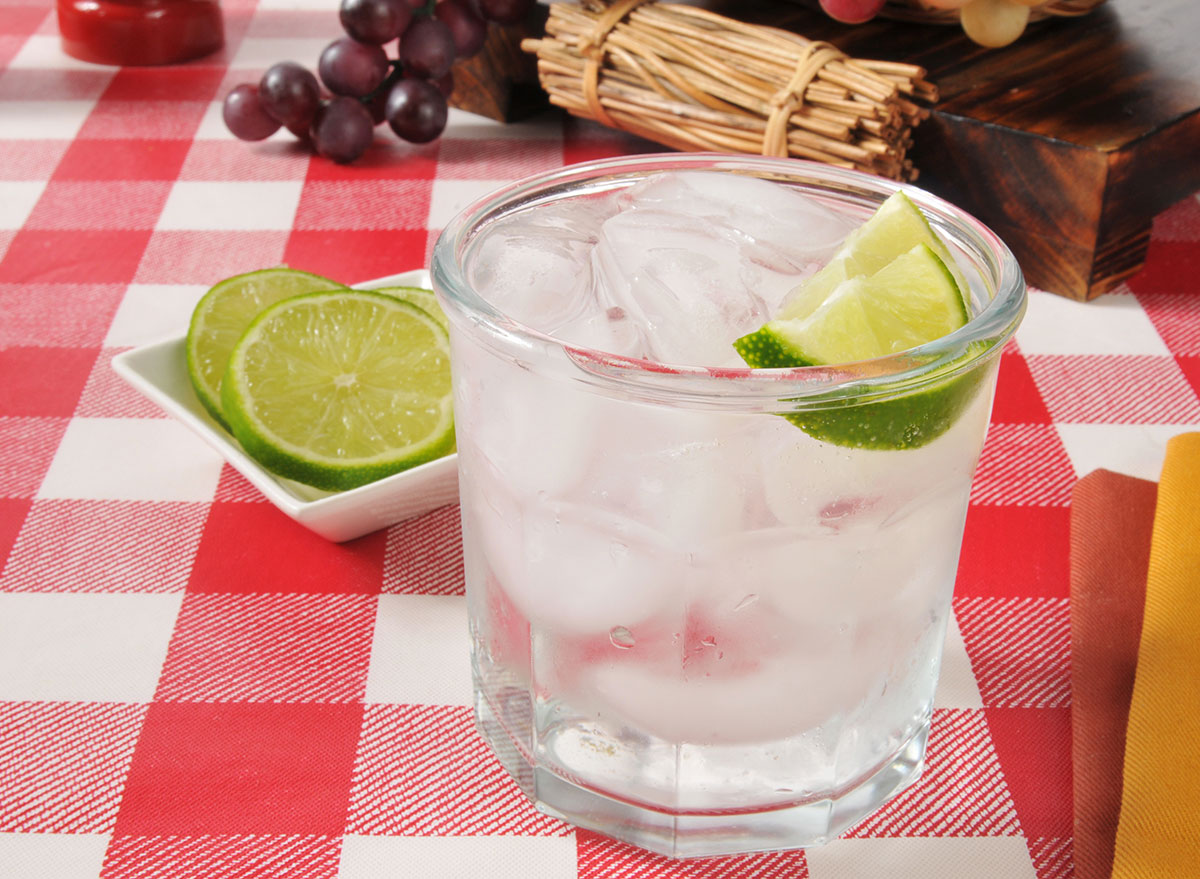
Certain other drinks can provide hydration just like water. "Keep in mind that unsweetened teas —hot or iced—count as water too," she says. (Coffee, sadly, does not.) "Swap your afternoon cup of joe for tea instead to work in some extra hydration." Similarly, she says unflavored seltzer water can also be as hydrating as water. Drink it to help break up the monotony of water. And for more healthy living advice, don't miss The Exact Distance You Should Walk Every Day to Extend Your Life, Says Research.
